French Cafés and Intellectual Culture: A Love Affair with Coffee
The Origins of French Cafés and Coffee Culture
The Arrival of Coffee in 17th Century France
In the mid-17th century, coffee made its grand entrance into France, thanks to the efforts of merchants and travelers who brought the exotic beans from the Middle East. Initially viewed as a curious and somewhat mysterious beverage, coffee quickly captured the imagination of French society. By the late 1600s, it had become a symbol of sophistication and modernity. Parisians, always eager to embrace new trends, were particularly enchanted by its aromatic allure and stimulating effects.
The establishment of the first café in Paris in 1686, the now-legendary Café Procope, marked a turning point. This venue, frequented by intellectuals, writers, and artists, became a cultural landmark where ideas were exchanged as freely as coffee was consumed. The beverage’s popularity soared, and by the 18th century, cafés had become integral to Parisian life.
The Role of Cafés in Intellectual and Social Revolutions
French cafés were more than just places to enjoy a cup of coffee; they were hubs of intellectual and social activity. During the Age of Enlightenment, these establishments served as meeting points for philosophers, writers, and revolutionaries. Thinkers like Voltaire and Rousseau were known to frequent cafés, where they debated ideas that would shape the course of history.
Cafés also played a pivotal role in the French Revolution. They became spaces where political ideas were disseminated and revolutionary fervor was stoked. The penny press, a precursor to modern newspapers, often distributed in cafés, allowed ordinary citizens to access information and participate in political discourse. This democratization of knowledge was a hallmark of café culture.
Moreover, the egalitarian nature of cafés—where individuals from different social classes could gather—challenged traditional hierarchies and fostered a sense of community. This blend of intellectual exchange and social interaction cemented the café’s place as a cornerstone of French culture.
Today, the legacy of these early French cafés lives on, not only in the coffee traditions of France but also in the global appreciation for coffee as a catalyst for conversation and creativity.
The Role of French Cafés in Intellectual Movements
Cafés as Hubs for Philosophical and Literary Exchange
French cafés have long been more than just places to enjoy a cup of coffee; they are cultural institutions that have shaped the course of intellectual history. From the Enlightenment to the existentialist movements of the 20th century, cafés in France have served as meeting places for philosophers, writers, artists, and thinkers who sought inspiration, debate, and camaraderie. The relaxed yet stimulating atmosphere of these establishments provided the perfect backdrop for the exchange of ideas. Whether discussing revolutionary concepts or crafting literary masterpieces, these spaces became incubators for some of the most influential ideas in Western thought.
Iconic Cafés and Their Legendary Patrons
Certain French cafés have achieved legendary status due to their association with intellectual luminaries. For instance, Café Procope in Paris, established in 1686, is often regarded as the oldest café in the city and a gathering spot for figures like Voltaire and Rousseau. During the Enlightenment, such cafés were hotbeds of philosophical discourse, where ideas about liberty, reason, and human rights were fervently debated.
In the 20th century, cafés like Café de Flore and Les Deux Magots became synonymous with existentialist thought. Thinkers such as Jean-Paul Sartre and Simone de Beauvoir frequented these establishments, where they wrote, discussed, and refined their ideas. These cafés were not just places to drink coffee but were integral to the intellectual and cultural fabric of their time.
The Café as a Creative Workshop
For many artists and writers, French cafés functioned as informal creative workshops. The tables and chairs of these spaces bore witness to the drafting of novels, the sketching of paintings, and the composition of manifestos. The café environment, with its blend of social interaction and solitary contemplation, offered a unique setting where creativity could flourish. It was here that the boundaries between art, literature, and philosophy often blurred, giving rise to movements that would leave an indelible mark on global culture.
The Legacy of French Cafés in Modern Coffee Culture
While the intellectual movements of the past have evolved, the legacy of French cafés continues to influence modern coffee culture. Today, many specialty coffee shops and cafés around the world draw inspiration from this tradition, creating spaces that encourage conversation, creativity, and community. The connection between coffee and intellectual exchange, forged in the cafés of France, remains a testament to the enduring power of a simple cup of coffee to bring people together and ignite the fires of thought.
The Art of Brewing Coffee the French Way
French coffee brewing is steeped in tradition, offering a unique and time-honored approach to crafting the perfect cup. Whether you’re savoring a Café au Lait or a robust Café Noir, the French methods emphasize simplicity, balance, and a deep appreciation for the coffee’s natural flavors. These techniques have not only shaped the French coffee experience but have also left an indelible mark on modern coffee culture worldwide.
Traditional French Coffee Brewing Methods
At the heart of French coffee culture lies two iconic preparations: Café au Lait and Café Noir. Each method highlights a different aspect of coffee, offering a distinct experience for the drinker.
- Café au Lait: Translating to “coffee with milk,” this beloved beverage is a harmonious blend of strong brewed coffee and steamed milk, typically served in a wide bowl. The French often use a drip or press method to brew the coffee, ensuring a robust foundation for the creamy, smooth finish.
- Café Noir: Known as “black coffee,” this is the quintessential French espresso or strong drip coffee, served without milk or sugar. It’s a bold, straightforward brew that celebrates the coffee’s intrinsic flavors, often enjoyed during morning meals or as an afternoon pick-me-up.
The Influence of French Brewing on Modern Coffee Culture
The French approach to coffee has had a profound impact on how the world enjoys its brew. Here’s how:
- Emphasis on Balance: French methods prioritize the equilibrium between coffee and its accompaniments, like milk. This philosophy has inspired modern café menus to experiment with ratios and pairings, enhancing the coffee-drinking experience.
- Focus on Technique: The use of manual brewing tools, such as the French press, has gained popularity globally, encouraging coffee enthusiasts to take a hands-on approach to their craft. The press, in particular, is celebrated for its ability to produce a rich, full-bodied cup.
- Aesthetic and Ritual: French coffee culture’s emphasis on presentation and ritual has influenced the design of modern coffee shops, where ambiance and experience are as important as the coffee itself.
By embracing these traditional methods, coffee lovers can connect with a rich history while exploring the nuances of flavor and technique that define French brewing.
The Aesthetic and Atmosphere of French Cafés
The Unique Design and Ambiance
French cafés are instantly recognizable for their timeless design and inviting atmosphere. From the classic wicker chairs and marble-topped tables to the large windows that flood the space with natural light, every detail is curated to create a sense of elegance and comfort. The interiors often feature muted color palettes, ornate woodwork, and vintage posters, evoking a sense of history and sophistication. Whether nestled in a bustling Parisian boulevard or a quiet provincial town, these cafés exude a charm that is both refined and welcoming.
The ambiance is equally distinctive. The gentle hum of conversation, the clinking of coffee cups, and the occasional burst of laughter create a symphony of sounds that feels both lively and intimate. It’s a space where people come to think, create, and connect, making it a hub of intellectual and social activity. The aroma of freshly brewed coffee mingles with the scent of pastry, further enhancing the sensory experience.
Why French Cafés Remain Timeless and Inspiring
French cafés have endured as cultural landmarks because they offer more than just a place to enjoy a cup of coffee. They are sanctuaries of inspiration, where artists, writers, and thinkers have gathered for centuries to exchange ideas and challenge the status quo. The atmosphere encourages reflection and creativity, making it a haven for those seeking a moment of solitude or a spark of inspiration.
Moreover, these spaces embody the French art of savoir-vivre—the art of living well. They remind us to slow down, savor the moment, and appreciate the simple pleasures of life. In an increasingly fast-paced world, the enduring appeal of French cafés lies in their ability to offer a timeless escape, where the past and present coexist harmoniously.
Finally, the design and ambiance of French cafés have influenced coffee culture worldwide. From specialty coffee shops in major cities to cozy corner cafés, the essence of these spaces continues to inspire. They serve as a testament to the power of thoughtful design and the importance of creating environments that foster connection and creativity.
French Cafés as Cultural Hubs Today
The Modern Role of Cafés in French Society and Beyond
In contemporary France, cafés remain vibrant cultural hubs where people gather to discuss ideas, work, or simply enjoy a moment of respite. They are more than just places to drink coffee; they are spaces for connection and creativity. From students brainstorming over espressos to artists sketching in their notebooks, cafés continue to foster intellectual and artistic exchange. Beyond France, this model has inspired countless coffee shops around the globe, emphasizing the importance of ambiance, community, and quality brews.
How French Café Culture Inspires Coffee Shops Worldwide
The charm of French cafés lies in their ability to blend tradition with modernity. This duality has influenced coffee cultures from New York to Tokyo, where cafés often mirror the French emphasis on leisurely enjoyment and social interaction. Elements like outdoor seating, artisanal pastries, and a focus on premium coffee beans are hallmarks of this inspiration. Here are some key ways French café culture has shaped global coffee trends:
- Ambiance and Design: Many international cafés adopt the cozy, inviting atmosphere of French cafés, with rustic decor and communal tables.
- Focus on Quality: The French insistence on high-quality ingredients has inspired a global movement toward specialty coffee and artisanal baking.
- Social Spaces: Cafés worldwide now prioritize creating environments where people can gather, work, and connect, much like their French counterparts.
French cafés have become a blueprint for what a coffee shop can be: a place where culture, community, and coffee intersect seamlessly.
Exploring Gourmet Coffee in the French Tradition
The Growing Appreciation for Specialty Coffee in France
While France has long been celebrated for its café culture, the nation is now embracing a new wave of coffee appreciation: specialty coffee. Traditionally dominated by espresso and café au lait, the French coffee scene is evolving, with a growing number of third-wave coffee shops and roasters putting a premium on quality, transparency, and craftsmanship.
This shift reflects a broader global trend, but with a distinctly French twist. French baristas and roasters are blending their art de vivre with an attention to detail that highlights the unique flavors of single-origin beans and meticulously crafted brews. From Paris to Lyon, coffee enthusiasts are beginning to explore the nuances of gourmet coffee, savoring its complexities with the same reverence they reserve for fine wine or artisanal cheese.
How to Experience Gourmet Coffee Like a True French Connoisseur
To truly appreciate gourmet coffee in the French tradition, one must approach it with curiosity and a willingness to learn. Here are some steps to guide you on this flavorful journey:
- Start with the beans: Seek out single-origin coffees or carefully blended roasts from reputable French cafés or roasters. Look for information on the bean’s origin, processing method, and roast profile.
- Explore brewing methods: Experiment with different brewing techniques, such as pour-over, AeroPress, or French press, to discover how each method enhances the coffee’s unique characteristics.
- Engage with the barista: In French coffee shops, baristas are often passionate about their craft. Don’t hesitate to ask questions about the coffee’s flavor notes, brewing process, or origin.
- Savor slowly: Take the time to enjoy your coffee, paying attention to its aroma, texture, and aftertaste. This mindful approach aligns with the French philosophy of savouring the moment.
By immersing yourself in the world of specialty coffee, you’ll not only deepen your appreciation for this beloved beverage but also gain insight into the French art of living, where quality and pleasure go hand in hand.
The Enduring Love Affair Between Coffee and French Culture
For centuries, coffee has been more than just a beverage in France—it’s a symbol of intellectual exchange, social connection, and cultural identity. From the bustling cafés of Paris to the quaint bistros in provincial towns, the French have elevated coffee drinking into an art form. This enduring love affair continues to thrive, shaping not only how the French enjoy their coffee but also how the world perceives it.
Why Coffee Remains a Symbol of French Intellectual and Social Life
French cafés have long been hubs of creativity and debate, where philosophers, writers, and artists gather to exchange ideas. This tradition dates back to the Enlightenment era, when figures like Voltaire and Rousseau frequented cafés to discuss their revolutionary thoughts. Today, this intellectual spirit lives on, making cafés spaces where ideas and culture intersect.
Here’s why coffee remains central to French culture:
- Social Ritual: Coffee is often enjoyed in the company of others, fostering conversation and connection.
- Cultural Icon: From literature to cinema, coffee and cafés are recurring motifs in French art and storytelling.
- Slow Enjoyment: The French savor their coffee, making it a moment of pause in their day.
Personal Tips for Embracing the French Café Experience
If you want to immerse yourself in the French café culture, here are some tips to help you embrace it authentically:
- Order Like a Local: Opt for a simple café noir (black coffee) or a café crème (coffee with milk) rather than elaborate beverages.
- Take Your Time: Sit back, relax, and enjoy your coffee slowly. The French value the experience as much as the drink itself.
- Engage in Conversation: Whether it’s with a friend or a stranger, use the café as a space to connect and share ideas.
- Observe the Atmosphere: Pay attention to the décor, the hum of conversation, and the rhythm of the café—it’s all part of the experience.
FAQ: French Café Culture
- Why is café culture so important in France?
- French café culture is a reflection of the nation’s values: intellectual curiosity, social interaction, and a love for the finer things in life. It’s a space where people gather to connect, reflect, and enjoy the moment.
- What makes French coffee unique?
- French coffee is often brewed using a French press or espresso machine, resulting in a rich, bold flavor. However, it’s the way it’s enjoyed—slowly, with intention—that truly sets it apart.
As you sip your next cup of coffee, let it remind you of the timeless charm and intellectual legacy that French cafés have gifted the world. Whether you’re in a Parisian café or your own kitchen, embracing this tradition can transform your coffee into a moment of inspiration and connection.
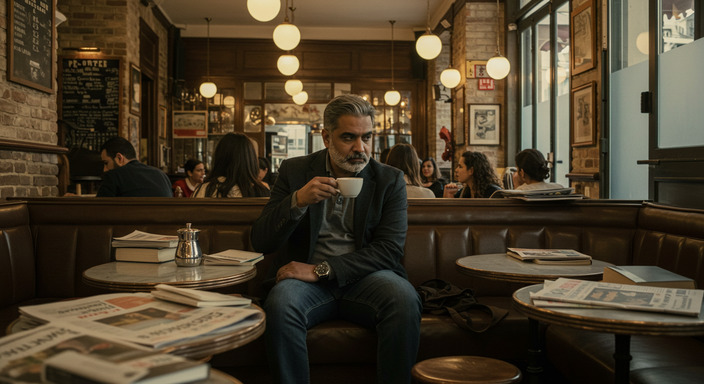
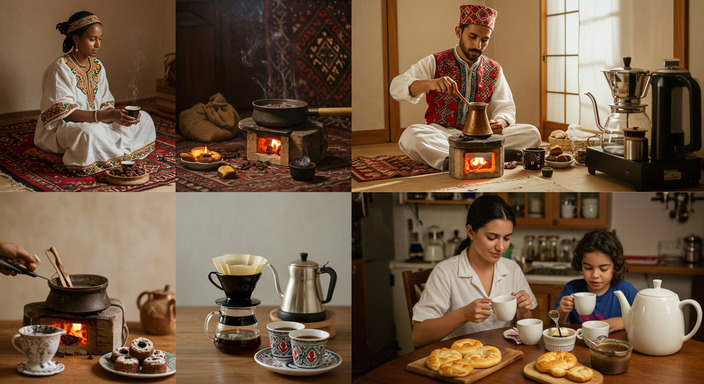
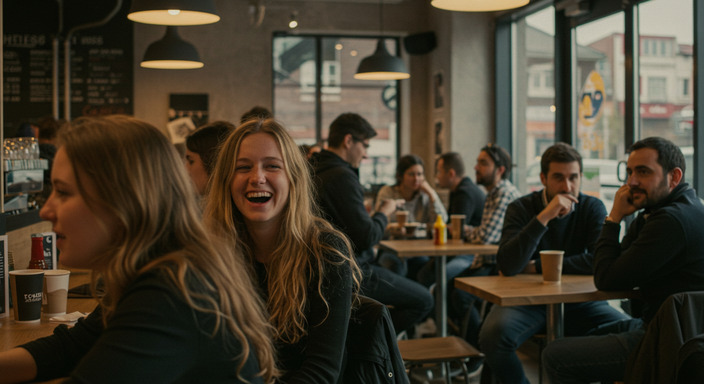
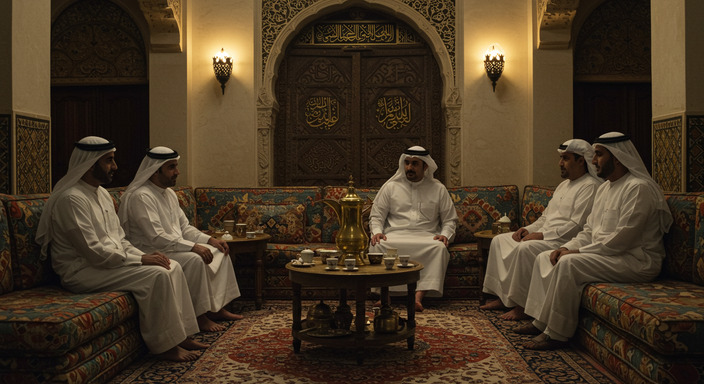
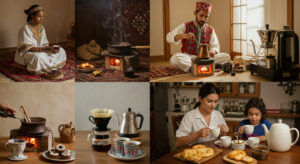
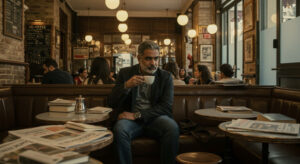


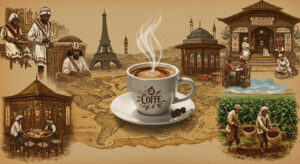

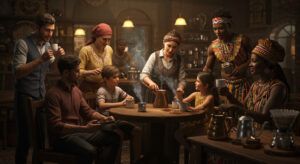


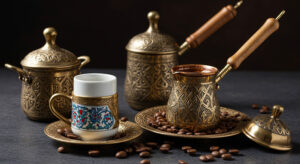
Post Comment